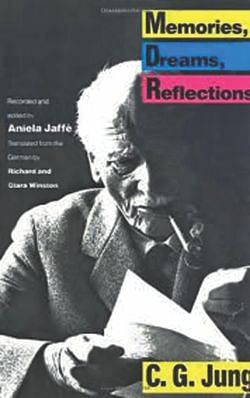Memories, Dreams, Reflections

Taking up C. G. Jung's book “Memories, Dreams, Reflections” was perfect in the bitter cold weather that we were passing in Massachusetts last week. For voracious readers like myself, it was like finding life with a new light by a great thinker. It is heavy reading and one needs to reflect on each piece of information thoroughly before moving onto the next. However, the book is a masterpiece when one wants insight into human nature. It makes you rediscover yourself and others around you. As one of world's greatest psychiatrist and psychotherapist, Carl Gustav Jung, (26 July, 1975- 6 June, 1961) has astounding facts about human nature. He was a Swiss and was the founder of analytical psychology.
To our conscious self, life comes with different pictures at various stages of life. While the early years usually focus more on knowing the outside world, the later years may make us wonder if we had known our own selves after all. Interactions with other people make us acknowledge that personalities vary and that people regard us differently too. There lies an unknown unconscious being that waits to be discovered, that we cannot exactly lay our hands on. C. G. Jung held up the existence of the unconscious. He writes that the unconscious is the universal inherited theme that carries us to the roots and to the infinite. The unconscious within us appears in overt behavior or dreams. According to Jung, dreams are windows to the unconscious. The lengthy debates of his dreams and their meanings has the readers thinking twice about their own dreams. He gives a spiritual definition of the unconscious very different from his mentor Freud, who was for more of an animalistic presentation of the unconscious.
According to Jung, our dreams communicate to the unconscious and offer guidance to the waking self. He also speaks of the ego as the sense in which humans want to represent themselves. He writes of the opposites of things, such as 'love/hate' or 'light/dark' and continues to say that often opposing factors are like 'the shadow' that works against our ego. He writes, “The pendulum of the mind oscillates between sense and nonsense, not between right and wrong.” But often the ego is sort of a foreign sense to our own selves. Jung's theories of dreams and the unconscious self are like bursts of lights into the think-tank of the readers. For once instead of our outer appearances, we think more about the unique unseen within us; invisible and yet so much a part of us.
At a time when restlessness seems to define the present world and we try to delve to its roots and causes, Jung strikes the keys as he writes of the psyche and its endlessly varied recombination of age-old components. He argues, “But it is precisely the loss of connection with the past, our up-rootedness, which has given rise to the “discontents” of civilization and to such flurry and haste that we live more in the future and its chimerical promises of a golden age than in the present, with which our whole evolutionary background has not yet caught up.”
Indeed it makes the reader wonder, if, in our rush to reach perfection in civilization, have we missed some sublime steps that could have given us a more peaceful world? Hence come our thoughts of the trials and errors in life. As we pay for our mistakes, we wish we could rewind time and events to reverse our actions. When one is upset with the mistakes in life Jung's words on this topic explain our errors offer comforting thoughts. In “Memories, Dreams and Reflections”, he writes, "When one follows the path of individuation, when one lives ones own life, one must take the mistakes into the bargain; life would not be complete without them. One must think that there is a sure road. But that would be the road to death. Then nothing happens anymore…"
We know death is inevitable and yet strive to create permanence in life. But there is the hanging question of which kind of permanence we strive for. Is it love and honor from mankind, richness and wealth or the promise of eternal peace with good deeds? Jung gives more food for thought with, “The decisive question for man is: Is he related to something infinite or not?” He is of the opinion that if we had an answer to a more sublime permanence, perhaps man would be less stressed about temporary possessions. If man understood that what he has in this life is linked to the infinite, perhaps that would change our desires and attitudes. Then material possessions would find second choices in seeking the infinite. In regard to relationships with other people too, he says, the crucial question is the boundlessness in the relationship.
Jung's firm stand on dreams as windows to the inner self and how they throw light on life events definitely makes the reader think twice about his or her dreams. He writes of several instances where his dreams spoke of realities in life more than his own observations. However, for the average man, the perplexity hangs in how to interpret dreams correctly, dreams have such varieties of interpretations.
Throughout the whole book we are brought to the call for awakening of the unconscious. We wake up with a bigger jolt when he writes,“Your visions will become clear only when you can look into your own heart. Who looks outside, dreams; who looks inside, awakes”. There remains no doubt that indeed we need to understand our own selves first and then relate or judge others. If we learned to recognize the inner self and all that can lead us to harmony in life, to the infinite, perhaps the restless world would find some solace of its own. Although I took up “Memories, Dreams, Reflections” in winter, but I know that I will be reading it through other seasons too. If you have not been into reading psychology yet, just take this book and see how hooked you get to reading more of Jung.
Tulip Chowdhury writes from Massachusetts, USA.

 For all latest news, follow The Daily Star's Google News channel.
For all latest news, follow The Daily Star's Google News channel. 



Comments